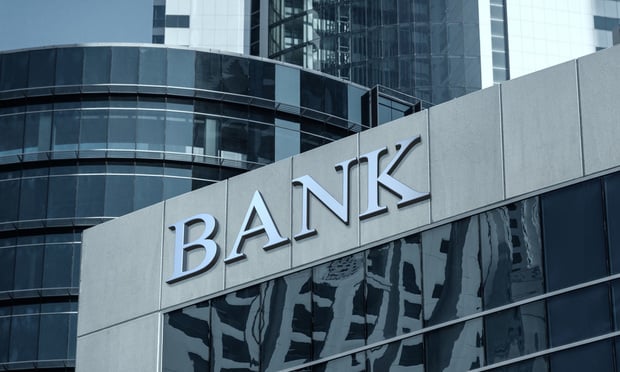SAN DIEGO—It is a great time to be in the multifamily commercial finance business. So said Rodgrigo Lopez, 2017 MBA chairman and executive chairman at Northmarq Capital Finance LLC. Rodgrigo opened the general session at MBA's CREF/Multifamily Housing Convention and Expo 2017 and said that “Our blueprint for the future will focus on effective flow of capital while maintaining the right regulatory balance; transformational technology; and on achieving meaningful diversity in our industry.”
Each capital source is subject to distinct government rules and regulations, he said. “The complexity of regulatory frameworks leads to overlapping rules, which negatively impact the entire commercial and multifamily real estate finance industry.” For example, he pointed out that the core purpose of the Home Mortgage Disclosure Act– or HMDA– is to mandate reporting on consumer lending, rather than business-to-business lending on commercial and multifamily real estate.
“The recently expanded HMDA rule, however, imposes considerable reporting obligations on a wide range of institutions that provide capital for multifamily real estate assets,” said Lopez. “This regulatory expansion arguably presents significant concerns across the commercial/multifamily sector, without delivering a corresponding public policy benefit.”
He said that other regulations present challenges because they are developed in isolation within bureaucratic silos that end up having unintended effects across markets. “Regulatory capital requirements, including those advanced by the Basel Committee on Banking Supervision, have led to uncertainty in balance sheet lending, as well as construction lending under the High Volatility Commercial Real Estate rules.”
Similarly, he noted, for some life insurance companies, additional federal regulations could be layered on top of the long established state regulations already in effect. “The goal then should not be to impose more and more regulation, but instead to strike the right balance that allows us to best serve our customers and grow the global economy.”
On the technology front, Lopez explained that “We live in a time where we expect information instantly. By embracing new technologies, we have the opportunity for tremendous growth. It will help us attract and communicate with new customers and new generations of employees.”
He added that “we are an industry that must embrace new technology. Imagine what could be. Don't focus on what has been.”
A diverse and inclusive workforce allows for better decision making, explained Lopez. “Cultural diversity leads to broader ideas and greater success.”
The “What's Ahead in the Global Economy” general session also included a speech from Dave Stephens, president and CEO of Mortgage Bankers Association. He focused his speech on impact.
“As an industry, the idea of impact has never been more important because we are about to undergo some of the most extraordinary changes coming down the pipe,” Stephens said. “Many of us may remember the 1986 tax reform legislation. Since then, there have been some small changes here and there, but 30 years later, we are on the cusp of addressing this again. If you thought '86 was a big deal, you better buckle in.”
Under the House proposal, he said, “1031 tax exchange will be done; depreciation will be gone; deductibility of business interest will be gone; tax credits that will affect a lot of us will be gone…and so much more.”
He mentioned that one tax reform line item will have a rippling effect. “We need to make sure they understand the ripple effect in creating a broad sweeping tax reform legislation.”
The way you are effective on legislation like this is to intercede and help shape the policy before they are locked in, he explained. “It will take all of us with a unified voice in order to shape the right legislative outcomes. Having a collective voice is so important. It will affect your capital, your profits and your role in this market.”
Keep checking back with GlobeSt.com this week for more coverage from the MBA's CREF/Multifamily Housing Convention and Expo 2017.
SAN DIEGO—It is a great time to be in the multifamily commercial finance business. So said Rodgrigo Lopez, 2017 MBA chairman and executive chairman at Northmarq Capital Finance LLC. Rodgrigo opened the general session at MBA's CREF/Multifamily Housing Convention and Expo 2017 and said that “Our blueprint for the future will focus on effective flow of capital while maintaining the right regulatory balance; transformational technology; and on achieving meaningful diversity in our industry.”
Each capital source is subject to distinct government rules and regulations, he said. “The complexity of regulatory frameworks leads to overlapping rules, which negatively impact the entire commercial and multifamily real estate finance industry.” For example, he pointed out that the core purpose of the Home Mortgage Disclosure Act– or HMDA– is to mandate reporting on consumer lending, rather than business-to-business lending on commercial and multifamily real estate.
“The recently expanded HMDA rule, however, imposes considerable reporting obligations on a wide range of institutions that provide capital for multifamily real estate assets,” said Lopez. “This regulatory expansion arguably presents significant concerns across the commercial/multifamily sector, without delivering a corresponding public policy benefit.”
He said that other regulations present challenges because they are developed in isolation within bureaucratic silos that end up having unintended effects across markets. “Regulatory capital requirements, including those advanced by the Basel Committee on Banking Supervision, have led to uncertainty in balance sheet lending, as well as construction lending under the High Volatility Commercial Real Estate rules.”
Similarly, he noted, for some life insurance companies, additional federal regulations could be layered on top of the long established state regulations already in effect. “The goal then should not be to impose more and more regulation, but instead to strike the right balance that allows us to best serve our customers and grow the global economy.”
On the technology front, Lopez explained that “We live in a time where we expect information instantly. By embracing new technologies, we have the opportunity for tremendous growth. It will help us attract and communicate with new customers and new generations of employees.”
He added that “we are an industry that must embrace new technology. Imagine what could be. Don't focus on what has been.”
A diverse and inclusive workforce allows for better decision making, explained Lopez. “Cultural diversity leads to broader ideas and greater success.”
The “What's Ahead in the Global Economy” general session also included a speech from Dave Stephens, president and CEO of Mortgage Bankers Association. He focused his speech on impact.
“As an industry, the idea of impact has never been more important because we are about to undergo some of the most extraordinary changes coming down the pipe,” Stephens said. “Many of us may remember the 1986 tax reform legislation. Since then, there have been some small changes here and there, but 30 years later, we are on the cusp of addressing this again. If you thought '86 was a big deal, you better buckle in.”
Under the House proposal, he said, “1031 tax exchange will be done; depreciation will be gone; deductibility of business interest will be gone; tax credits that will affect a lot of us will be gone…and so much more.”
He mentioned that one tax reform line item will have a rippling effect. “We need to make sure they understand the ripple effect in creating a broad sweeping tax reform legislation.”
The way you are effective on legislation like this is to intercede and help shape the policy before they are locked in, he explained. “It will take all of us with a unified voice in order to shape the right legislative outcomes. Having a collective voice is so important. It will affect your capital, your profits and your role in this market.”
Keep checking back with GlobeSt.com this week for more coverage from the MBA's CREF/Multifamily Housing Convention and Expo 2017.
Continue Reading for Free
Register and gain access to:
- Breaking commercial real estate news and analysis, on-site and via our newsletters and custom alerts
- Educational webcasts, white papers, and ebooks from industry thought leaders
- Critical coverage of the property casualty insurance and financial advisory markets on our other ALM sites, PropertyCasualty360 and ThinkAdvisor
Already have an account? Sign In Now
© 2024 ALM Global, LLC, All Rights Reserved. Request academic re-use from www.copyright.com. All other uses, submit a request to [email protected]. For more information visit Asset & Logo Licensing.









